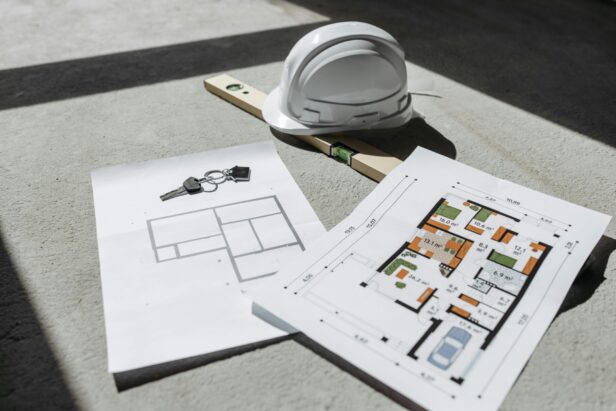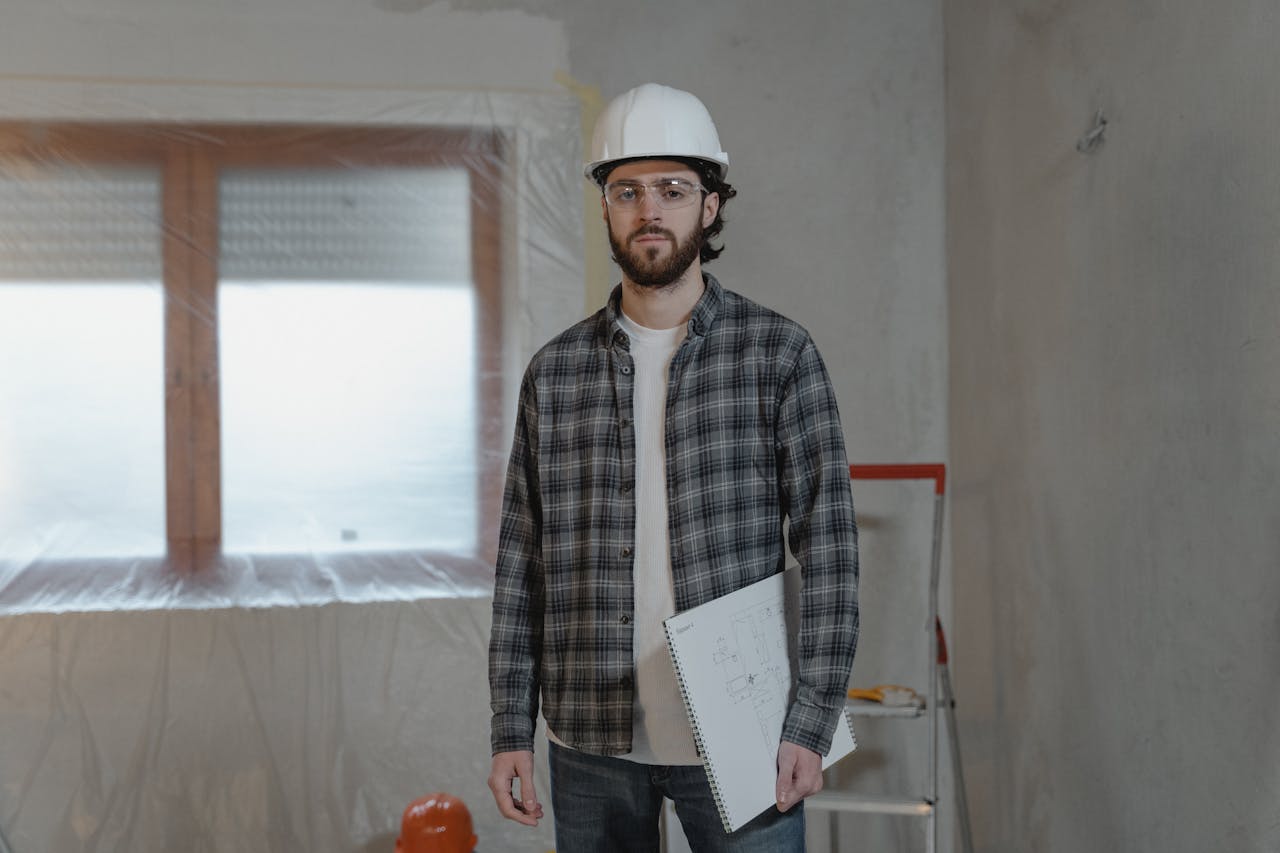El Paso’s construction landscape features general contractors who handle everything from project inception to completion. These firms coordinate with architects and engineers, manage subcontractor schedules, secure building permits, and oversee inspections throughout the construction process.
The local market offers diverse delivery methods including design-build services, construction management, and specialized permitting assistance across commercial buildings, medical facilities, transportation infrastructure, military installations, and higher-education projects.
What Services Do El Paso General Contractors Typically Provide?

We coordinate specialized subcontractors, arrange permits and inspections, and oversee daily operations across construction sites. These foundational services form the backbone of how we manage projects from initial planning through completion.
Our core general contracting services ensure every trade connects smoothly. We schedule electrical, plumbing, HVAC, and other specialized teams to work in proper sequence, preventing delays and conflicts on site.
Design-Build Services With In-House Teams
Many local firms offer design-build services through in-house architects, engineers, cost estimators, and construction managers. This approach provides single contract delivery, eliminating coordination issues between separate design and construction teams.
We serve as a single point of contact throughout the entire process. Our integrated teams work together from initial concepts through final inspections, streamlining communication and reducing potential conflicts between design intent and construction reality.
In-house design and engineering teams help establish realistic project schedules and budget control from the start. Cost estimators work directly with architects during design development, ensuring buildability and accurate pricing before construction begins.
Construction Management And Permitting
Construction management services focus on representing owner interests while coordinating all project stakeholders. We manage subcontractor schedules, quality control, and budget tracking while maintaining clear communication with property owners and developers.
Permitting expediting has become essential for commercial projects, industrial projects, and medical facilities. We navigate local code requirements, submit applications, and coordinate inspections to keep projects moving forward without regulatory delays.
Many firms emphasize world-class safety practices alongside schedule and cost control. We implement safety protocols that protect workers while maintaining productivity, using modern construction technologies to track progress and identify potential issues before they impact timelines.
Our services extend across commercial, medical, dental, orthodontic, and renovation work throughout El Paso. Each project type requires specific expertise in codes, systems, and coordination approaches that we’ve developed through years of local experience.
How Does Design-Build Compare To Design-Bid-Build In El Paso?
Design-build consolidates design and construction under a single contract, creating an integrated team approach that streamlines project delivery. Unlike the traditional design-bid-build method where owners manage separate contracts for architects and contractors, design-build establishes one point of contact responsible for the entire project lifecycle.
In the design-build model, we work directly with owners from initial concept through final completion. Our design and construction teams collaborate from day one, allowing us to identify potential issues early and optimize solutions before they become costly problems.
Sequential Versus Integrated Project Flow
Design-bid-build follows a linear sequence where design must be completed before construction begins. The owner first contracts with architects and engineers to develop complete plans and specifications. Once drawings are finalized, the project goes to bid among general contractors who provide pricing based on finished designs.
This sequential approach creates clear separation between design and construction phases but can extend project timelines significantly. Research shows design-build projects demonstrate a 9% reduction in total project duration and a 13% reduction in construction phase duration compared to design-bid-build projects.
Design-build overlaps these phases, enabling construction to begin on early project elements while final designs are still being developed. We can start site preparation and foundational work as soon as those elements are approved, rather than waiting for complete architectural drawings.
Risk Allocation And Contract Structure
The contract structure fundamentally changes how project risks are distributed. In design-bid-build, owners bear significant risk because they manage multiple contracts with different parties who may have conflicting interests.
When design errors surface during construction, owners often find themselves mediating disputes between architects and contractors. Change orders become more complex because responsibility for design deficiencies can be difficult to establish between separate entities.
Design-build transfers most project risks to a single entity responsible for both design quality and construction execution. We assume responsibility for design errors, construction defects, and integration challenges, providing owners with clearer accountability and reduced exposure to finger-pointing between different contractors.
Cost Control And Budget Predictability
Budget development differs substantially between these delivery methods. Design-bid-build provides detailed cost certainty only after designs are complete and contractors submit competitive bids. However, if bids exceed budgets, owners face expensive redesign cycles and rebidding processes.
We establish preliminary budgets during design-build’s early phases, providing ongoing cost feedback as designs develop. This collaborative approach helps owners understand cost implications of design decisions in real time, rather than discovering budget overruns after designs are finalized.
Studies indicate design-build projects experienced fewer change orders than comparable design-bid-build projects, though the average cost per change order was greater for design-build projects. However, the dollar value of claims per project was significantly lower for design-build projects.
When Owners Choose Each Method
Owners typically select design-bid-build when they prioritize competitive bidding and maximum control over design decisions. This method works well for straightforward projects where design requirements are clearly defined and time constraints are flexible.
Design-bid-build also appeals to owners who prefer managing separate relationships with designers and contractors, or when regulatory requirements mandate competitive bidding processes for public projects.
Design-build becomes attractive when owners prioritize speed, single-point accountability, and integrated project delivery. Complex projects benefit from early contractor input on constructability, cost optimization, and schedule coordination.
Many El Paso owners choose design-build for projects requiring fast-track delivery or when they prefer reduced administrative oversight of multiple contracts. We also handle design-bid-build projects when owners have already completed designs and seek competitive construction pricing.
What Project Sectors And Examples Show The Local Scope?

El Paso construction spans diverse sectors that reflect the region’s strategic border location and growing economy. Transportation infrastructure takes center stage with major highway projects connecting international routes. We coordinate housing renovations that adapt existing structures to modern standards. Urban parks and recreation facilities expand throughout the city’s districts.
Military facilities represent significant construction opportunities given the area’s defense presence. Higher-education projects include medical science buildings and research facilities that serve the university community. Industrial logistics and fueling infrastructure support cross-border commerce flows.
Transportation And Infrastructure Projects
Highway improvements dominate recent construction activity across El Paso. The Sean Haggerty Drive Extension creates a critical four-lane connection from Nathan Bay Drive to Dyer Street with a $34 million budget. This project includes bicycle lanes, ADA-compliant sidewalks, and complete street standards for multiple transportation modes.
The Borderland Expressway represents an 11-mile highway connection linking Martin Luther King Drive to New Mexico Highway 213. Phase 1 launched in early 2025 with Phase 2 scheduled by year-end. These highway projects require coordinated sitework, bridge construction, and utility relocations.
Water reuse infrastructure showcases innovative construction approaches. El Paso Water’s $295 million Pure Water Center broke ground as the nation’s first direct-to-distribution water reuse facility. The project treats 10 million gallons daily through advanced purification systems including reverse osmosis and UV oxidation.
Community And Educational Facilities
Urban park construction enhances recreational opportunities throughout the city. The Eastside Sports Complex Phase II added 40 acres with eight competition-grade fields, expanded parking, and ADA-accessible facilities. Modesto Gomez Park received $7 million in improvements including new baseball diamonds, lighting systems, and walking paths.
Higher-education projects serve the growing university community. Recent medical science buildings and learning complexes require specialized construction coordination for laboratory spaces, research facilities, and clinical areas. These projects often involve complex MEP systems and strict environmental controls.
The Mexican American Cultural Center represents a signature cultural facility with 41,000 square feet of exhibition spaces, performance venues, and artist studios. Fire station renovations across multiple locations improve emergency response infrastructure with upgraded HVAC, electrical, and apparatus bay systems.
How Can Owners Shortlist And Hire El Paso General Contractors?
Building a shortlist of qualified contractors requires strategic evaluation across multiple dimensions. We recommend starting with bid evaluation processes that examine more than just bottom-line pricing. Unusual variations in bids often signal misunderstood scope or potential change-order issues later in construction.
Pricing comparisons should account for labor rates, material allowances, and project duration estimates. When one contractor’s bid deviates significantly from others, investigate the reasoning behind their approach. Low bids might indicate missing scope items, while high bids could reflect premium materials or accelerated schedules that justify additional costs.
Reference Checks And Site Visits
We emphasize thorough reference verification beyond surface-level inquiries. Contact at least three recent clients and ask specific questions about communication patterns, schedule adherence, and how the contractor handled unexpected challenges. Focus on projects similar in scope and complexity to your own requirements.
Site visits to completed projects provide invaluable insights into workmanship quality and attention to detail. We arrange these visits during our contractor evaluation process because photographs alone cannot reveal construction quality. Ask references about post-completion issues and how quickly the contractor addressed any warranty items.
Reviews from multiple sources help validate contractor performance across different project types. Look for consistent themes in feedback regarding project management, subcontractor coordination, and final deliverables rather than focusing solely on isolated complaints or praise.
Contract Review And Scope Alignment
Contract terms determine project success as much as construction expertise. We review contracts to ensure scope alignment between your expectations and the contractor’s deliverables. Clear specifications prevent misunderstandings during construction phases and establish accountability for quality standards.
Schedule provisions should include milestone dates, completion deadlines, and procedures for handling delays. Budget sections must detail payment schedules, allowances, and cost-control mechanisms. Change orders represent a critical area requiring upfront agreement on pricing methodologies and approval processes.
Payment terms should protect both parties while maintaining project cash flow. We recommend avoiding contractors who demand full payment upfront or those unwilling to provide detailed cost breakdowns for their proposals.
Trade Categories And Network Sourcing
Construction networks help identify specialists across various trade categories essential for complex projects. Design and engineering firms, project management consultants, and specialized subcontractors often maintain relationships with reliable general contractors in the El Paso market.
Trade-specific sourcing allows targeted invitations to contractors with relevant experience. Demolition specialists understand existing structure challenges, while earthwork contractors bring site preparation expertise. Concrete, masonry, and structural steel contractors handle different aspects of building foundations and frameworks.
Electrical, flooring, and landscaping subcontractors round out the construction team. We coordinate these relationships through general contractors who maintain established partnerships with local trade professionals, ensuring seamless project execution.
Credentials And Certifications
Verify licensing requirements specific to El Paso and Texas construction regulations. Public work certifications differ from private project requirements, particularly for government contracts that demand additional bonding and compliance documentation.
Insurance coverage should include general liability, workers’ compensation, and professional indemnity protection appropriate for your project scale. We confirm coverage amounts meet or exceed project requirements and verify policy dates extend through project completion.
Professional certifications from industry organizations indicate commitment to ongoing education and best practices. Safety certifications become particularly important for complex projects involving hazardous materials or high-risk construction activities.
Conclusion And Next Steps For El Paso Projects

El Paso general contractors deliver comprehensive project management across commercial, medical, infrastructure, and specialty sectors. The local market provides proven delivery methods including design-build approaches that streamline communication and often reduce project timelines. We coordinate subcontractor teams, handle permitting processes, and maintain schedule control through established inspection workflows.
Define your project scope and preferred delivery method before reaching out to potential contractors. Create a shortlist based on relevant trade experience and sector expertise, then conduct thorough bid comparisons that include site visits and reference checks. Confirm permitting timelines and inspection schedules early in the process to prevent costly delays. These systematic steps position your project for successful completion from initial concept through final occupancy.
Ready to move forward with your El Paso construction project? Contact EB3 Construction to discuss your specific requirements and delivery approach.




